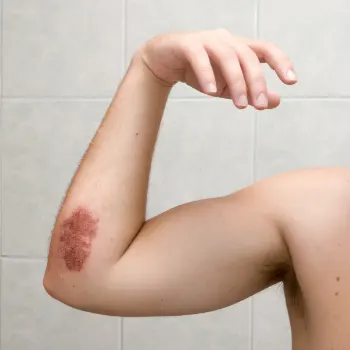
Understanding How Wounds Heal
Your body is designed to repair itself — but sometimes the healing process can slow down or go off track. Whether you have a small cut, a scrape, or a post-surgical incision, knowing how to recognize the normal signs of healing vs infection is key to preventing complications.
The 4 Stages of Wound Healing
Each wound goes through several phases of recovery, from clotting to tissue rebuilding. Here’s what happens at each stage:
These stages can take a few days to several weeks, depending on your age, health, and the wound’s size or depth.
Signs Your Wound Is Healing Normally
Healing wounds often show subtle improvements day by day. You’re likely on the right track if you notice:
- Scabbing or crusting: A protective layer forms over the wound.
- Mild swelling or redness: Normal in the first few days as the body fights bacteria.
- Decreasing pain: The wound should hurt less as tissue repairs.
- Edges closing in: The skin gradually knits together.
- Light, clear drainage: A small amount of thin yellow or clear fluid is healthy.
Tip: Minor wounds like scrapes or shallow cuts should begin to scab and shrink within a week. Larger or surgical wounds take longer, but improvement should be steady.
Warning Signs of Infection
Sometimes, a wound may look “stuck” or worsen instead of improving. See a doctor if you experience:
- Redness that spreads outward from the wound
- Swelling or warmth that worsens after several days
- Thick, yellow, green, or foul-smelling drainage
- Persistent or increasing pain
- Fever or chills
- Wound getting larger instead of smaller
These symptoms may indicate a bacterial infection, which can spread to deeper tissues or the bloodstream if untreated.
When to See a Doctor
Seek medical help immediately if:
- You have diabetes or a weakened immune system
- The wound was caused by a dirty or rusty object
- You experience numbness, excessive bleeding, or deep tissue exposure
- The wound shows no improvement after 7–10 days
Prompt care can prevent infection, scarring, or chronic wounds.
Professional Wound Care at BASS Medical Group
At BASS Medical Group, our primary care and surgical teams specialize in evaluating and treating wounds of all types — from minor cuts to post-operative healing.
We offer:
- Wound assessment and cleaning
- Infection prevention and antibiotic management
- Post-surgical wound monitoring
- Diabetic wound care and follow-up
Whether it’s a simple skin injury or a complex surgical incision, our experts can guide you through a safe and complete recovery.
Find a provider near you or schedule an appointment on our website.
Frequently Asked Questions
1. How do I know if my wound is healing or infected?
A healing wound should gradually close and hurt less over time. Spreading redness, pus, or increased pain may mean infection.
2. How long does it take for a wound to heal?
Minor cuts may heal in 1–2 weeks. Deeper wounds or surgical incisions can take several weeks to months.
3. Is it normal for a wound to itch while healing?
Yes — mild itching is a sign of new tissue growth and is typically part of healthy healing.
4. When should I change my wound dressing?
Follow your doctor’s advice, but generally every 1–2 days or when the dressing becomes wet or dirty.




